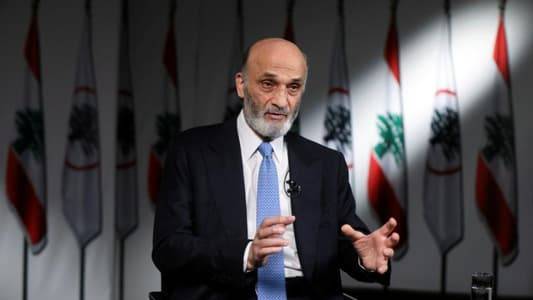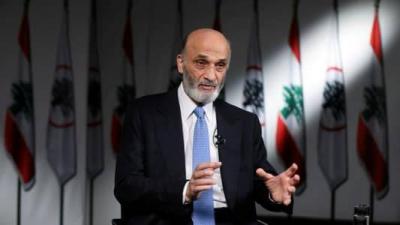The Christian-Christian disputes among Lebanese blocs and parties reflect the deadlock in reaching a consensus on a president for the republic, primarily between the "Hezbollah" team and its allies, who are divided due to the refusal of "Free Patriotic Movement" leader MP Gebran Bassil to support former minister Sleiman Franjieh of the "Maronite" Party, whom Hezbollah insists on backing. Consequently, this division could affect the legitimacy of the electoral session, even if Hezbollah manages to secure the required quorum for the election of its ally, raising questions about the potential restoration of the "Agreement of Maarab" that took place between the "Free Patriotic Movement" and the "Lebanese Forces," which led to Michel Aoun's election as president, but this time between the "Forces" and "Maronite" to bring Franjieh to the presidency.
The declared positions in this context, especially from "Lebanese Forces" leader Samir Geagea and leaders in the "Forces," reflect a firm rejection of the possibility of voting for Franjieh, as pointed out by MP Pierre Bou Assi, placing this in the category of impossibilities. Bou Assi rejects the notion that there is division among Christians and a deadlock in the outlook, arguing that the deadlock lies in the other party's disrespect for the constitution and the democratic process by calling for consensus before electing a president, a situation that began with the Syrian occupation and continues with Hezbollah. Thus, he believes the problem is not a division but rather political choices. He stated to "Asharq Al-Awsat": "Just as we presented a candidate and are working to secure the quorum, the other team must do the same; otherwise, the vacuum will prolong if the three blocs (Hezbollah, Amal Movement, and the Free Patriotic Movement) continue with their option to undermine the democratic process."
From this perspective, Bou Assi considers the repetition of the "Agreement of Maarab" with Franjieh impossible, saying: "The Maarab experience was not successful; although it had two aspects, the first and apparent was Aoun's support for the presidency, but the more important aspect was the conditions for accepting his election through agreeing to ten basic points, which he later violated with his allies after reaching the presidency." The most crucial points were "respecting Lebanese sovereignty, deploying the army across all territories, and implementing Arab and international resolutions." Therefore, Bou Assi believes that what did not occur with Aoun will certainly not happen with Franjieh, who is known for his choices with Hezbollah and the Syrian regime.
On the contrary, "Maronite" does not seem pessimistic about the possibility of reaching an agreement with the "Forces," especially since communications between the historical rivals have not ceased, particularly after the reconciliation that took place in Bkirki between them in 2018. This is indicated by former MP and member of the political bureau in "Maronite," Karim Rassi, who stated that there is communication between the "Forces" and "Maronite," and that an understanding between the two parties is not impossible, revealing that they recently received information from the "Forces" "that if there is an agreement on Franjieh, they will participate in the session and will not obstruct it and will bless him."
Rassi told "Asharq Al-Awsat": "If the 'Forces' find that they have an interest in this agreement and initiate contact, we will surely have no issue." He recalled Franjieh's earlier statement: "We give each party its size." In response to a question about why the "Maronite" does not take the initiative towards the "Forces," Rassi said, "There are communications and contacts between us more than with the 'Free Patriotic Movement,' but not at the level of Franjieh - Geagea, thus meeting with the 'Forces' is not impossible, and our relationship with any political team does not prevent us from having a good relationship with any other party, and what we want is for Franjieh to reach the presidency with as much internal support as possible."
In response to a question about whether the "Forces" will participate in the electoral session if Hezbollah and its allies manage to agree on Franjieh, or if they will resort to obstructing the quorum, sources in the "Forces" told "Asharq Al-Awsat": The opposition may resort to not attending one or two sessions in preparation for its battle in the coming phase while remaining in the opposition line and confrontation and will not give a chance to a team that has had a disastrous experience.
It is noteworthy that contrary to the media and political exchanges occurring between the "Free Patriotic Movement" and its former allies, "Forces" and "Maronite," the relationship between the "Forces" and "Maronite," historical opponents, has been characterized by calm, especially since the reconciliation that took place between them in Bkirki in 2018, at which time a document was issued stating that meeting and dialogue are not impossible, regardless of politics and its complexities, while reminding that "the relationship between the two parties has gone through several political and electoral stages in recent years, and no blemish has marred its stability, despite the political disagreements between them remaining unchanged."




